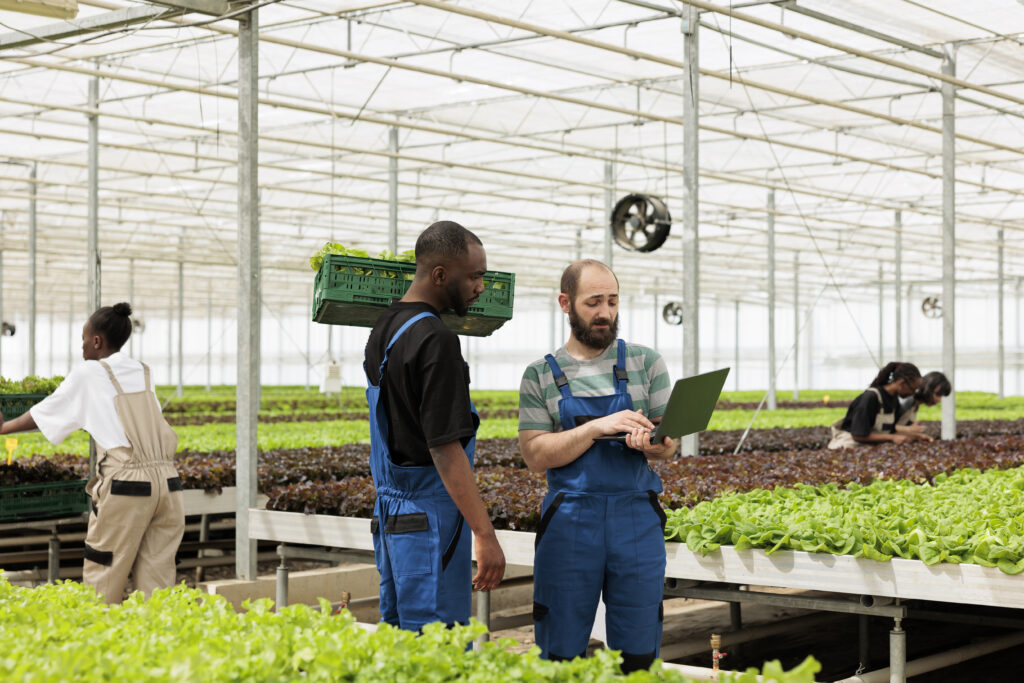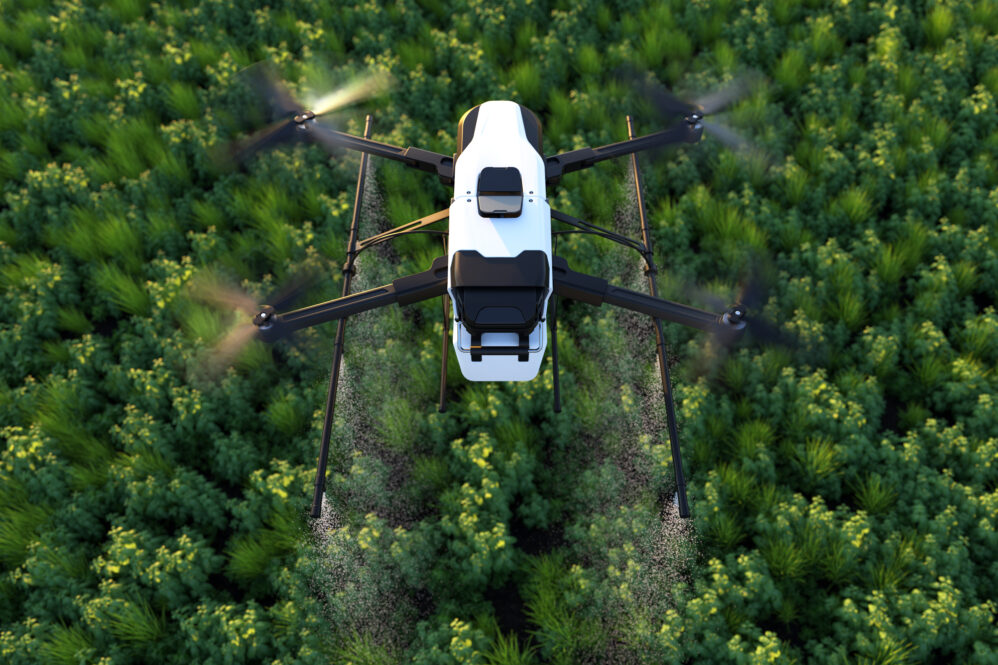Nigeria has considerable potential for agriculture. With more than 200 million people, the nation has a sizable internal market and is a significant exporter of agricultural goods to its West African citizens. About 70% of Nigeria’s workforce is employed in the Agricultural Sector, which accounts for more than 22% of the nation’s GDP. Despite this potential, the Sector has encountered several difficulties, including inadequate infrastructure, restricted access to financing, and low adoption of cutting-edge technologies.
Precision farming and data analytics, for example, have the potential to completely change the Nigerian agricultural industry by boosting output, cutting waste, and boosting profitability. Additionally, these technologies can aid farmers in better controlling the risks brought on by pests, diseases, and climate change.
This article examines how digital technologies impact Nigerian Agriculture. With a particular emphasis on investment prospects in precision farming and data analytics. We’ll talk about the advantages of these technologies, examples of Nigerian industries that were successful, investment opportunities, difficulties and challenges, and solutions.
Nigerian Agriculture and Data Analytics: Investment Opportunities and Market Insights
The deployment of digital technology has significantly changed in recent years in the Nigerian agriculture industry. Data analytics is one such tool that has completely changed how farmers approach agriculture. Farmers and other agricultural stakeholders may use data analytics to leverage the power of data to decide wisely about irrigation, crop management, soil health, and other important agricultural issues. The numerous data analytics technologies relevant to Nigerian agriculture will be covered in this article, along with investment options.
What is it Data analytics?
Utilizing Statistical and Computational methods, data analytics involves concluding data. Data analytics in agriculture entails gathering and analyzing different data points on crop development, soil health, weather patterns, and other pertinent information. Farmers may enhance their bottom line, maximize their yields, and acquire a better knowledge of their operations by using data analytics.
Technologies of Data Analytics for Nigerian Agriculture
Several data analytics technologies, including the following, apply to Nigerian agriculture:
Remote sensing: To gather information on crop growth, weather patterns, and soil moisture, satellites, and other sensors are used. Farmers may use this technology to make educated choices regarding irrigation, fertilizer, and other important elements of farming by getting real-time data from their operations.
Internet of Things (IoT): The IoT uses linked devices, such as sensors and drones, to gather information about crops and the condition of the soil. IoT technology provides farmers the ability to remotely monitor their operations and collect knowledge about the development of their crops, the health of the soil, and other important agricultural factors.
Predictive analytics: Predictive analytics uses artificial intelligence and machine learning to evaluate data and forecast future results. Predictive analytics in agriculture may assist farmers in seeing future crop production difficulties and taking proactive measures to solve them before they become problems.
Opportunities for Investment in Data Analytics Technologies
Data analytics technology adoption in Nigerian
Agriculture is still in its early stages, but the potential for expansion is substantial. Investors wishing to profit from this opportunity may consider investing in agricultural data analytics firms. They could also invest in firms creating new data analytics technologies for agriculture, such as those working on precision agricultural solutions, IoT devices, and predictive analytics tools.
Market Insight
MarketsandMarkets estimates that the worldwide market for precision farming will develop at a CAGR of 12.7% and reach $12.9 billion by 2027. The research further mentions that the business is expected to increase significantly as a result of the implementation of precision agricultural technology in developing nations like Nigeria.
The Intersection of Precision Agriculture and Data Analytics

Precision farming and data analytics are two digital technologies that have the potential to significantly assist Nigeria’s Agriculture economy. Precision farming is the practice of using technology to accurately control agricultural output, from planting through harvesting. Data analytics, on the other hand, is gathering and analyzing data to make informed judgments. Farmers may make data-driven choices that boost efficiency and production when these two technologies are combined.
- Collaboration between precision agriculture and data analytics
Sensors, drones, and other technology create massive volumes of data in precision farming. Data analytics may be used to examine this information and give insights that will assist farmers in making better choices. Data analytics, for example, may be used to assess weather patterns and soil moisture levels and assist farmers in determining the optimal time to sow and irrigate crops. It may also be used to examine crop production and soil quality data, assist farmers in optimizing fertilizer use, and improve soil health.
- Examples of precision farming and data analytics
Precision farming and data analytics are already being employed in Nigeria, with numerous successful projects to show for it. Babban Gona, a Nigerian agricultural start-up, has created a precision farming program that employs data analytics to increase crop yields. They’ve created a smartphone app that gathers information about soil quality, weather patterns, and other elements that influence crop development. This information is then evaluated to offer farmers advice on when and how to plant their crops.
Similarly, FarmCrowdy, a Nigerian agricultural start-up, has built a precision farming program that optimizes chicken output using data analytics. They’ve created a platform for collecting data on bird health, feed intake, and other variables influencing poultry output. This information is then evaluated to offer insights about how to enhance bird health and productivity.
- Investment potential in precision farming and data analytics integration
Precision farming and data analytics integration provide various investment prospects in Nigerian agriculture. The development of precision agricultural technology that provides data for the study is one potential. Sensors, drones, and other technology that gather data on soil quality, weather patterns, and other variables affecting crop development are included. Another possibility is the creation of data analytics systems capable of analyzing this data and providing insights to farmers.
Investors might also invest their money into companies that utilize precision farming and data analytics initiatives. These start-ups are usually in their early phases of growth and need money to expand their operations. Investors may help the expansion of the Nigerian agriculture industry while possibly earning big profits by investing in these start-ups.
Difficulties and Risks
Nigeria’s agricultural industry is one of the biggest in Africa, and it provides several investment prospects in precision farming and data analytics. However, opportunities bring challenges and risks that investors should be aware of before making investment decisions. In this part, we will look at some of the problems and dangers of investing in digital agriculture in Nigeria, and solutions to reduce them.
Infrastructure challenges: One of the primary issues confronting digital technology in Nigerian agriculture is a lack of suitable infrastructure. Many rural areas are devoid of basic infrastructure such as electricity, internet access, and access roads. It might be difficult to apply digital technology in agriculture without these essential utilities. To address this issue, investors could consider investing in infrastructure development such as road building, solar panel installation for power production, and the formation of communication networks to promote the use of digital technology in agriculture.
Low technology adoption: Low technology uptake is another difficulty linked with investing in digital technologies in Nigerian agriculture. Many Nigerian farmers are smallholders who are unfamiliar with agricultural digital technology. As a consequence, they may be wary about implementing these technologies. To address this issue, investors may consider investing in training and education initiatives to assist farmers comprehend the advantages of digital agricultural technology.
High cost of digital technologies: The high cost of purchasing and adopting digital technology is another problem linked with investing in digital technologies in Nigerian agriculture. Many smallholder farmers may find digital technology expensive due to their high cost. To address this issue, investors may consider investing in financial products that provide farmers with access to inexpensive loans and other types of funding, allowing them to buy and apply digital technology.
Cybersecurity risks: Risks linked with cyber security investments in Nigerian agriculture include the possibility of cyber-attacks. As digital technologies are used more frequently in agriculture, there is a chance that hackers will break into systems and steal private data. Investors should think about purchasing cybersecurity equipment that can shield digital technology from cyberattacks to reduce this risk.
Regulatory hazards: Investing in digital technology in Nigerian agriculture has additional regulatory risks. The use of digital technology in Agriculture, must be governed by the Nigerian government. The regulatory environment for digital agricultural technologies is still developing, thus there may be regulatory concerns that might affect investments in these technologies. Investors might think about hiring legal and regulatory specialists to assist them negotiate the regulatory environment to reduce this risk.
Conclusion
In conclusion, digital technologies such as precision farming and data analytics are transforming Nigerian agriculture by enabling farmers to make data-driven decisions and optimize their operations. These technologies have already shown their potential in improving crop yields, reducing waste, and increasing profitability. For investors looking for opportunities in Nigerian agriculture, precision farming, and data analytics present numerous investment opportunities, from software development to hardware deployment.
The dangers and difficulties associated with investing in these technologies must be properly addressed and reduced. Despite the difficulties, precision farming and data analytics have immense potential for Nigerian agriculture, and investments in these technologies could result in a more resilient and effective agricultural industry in Nigeria.












